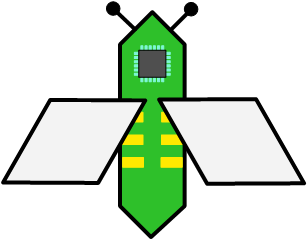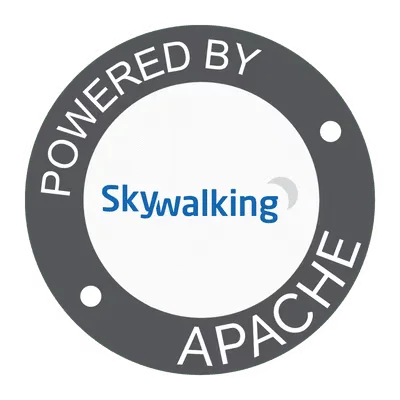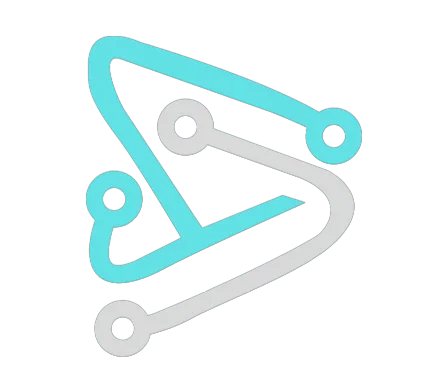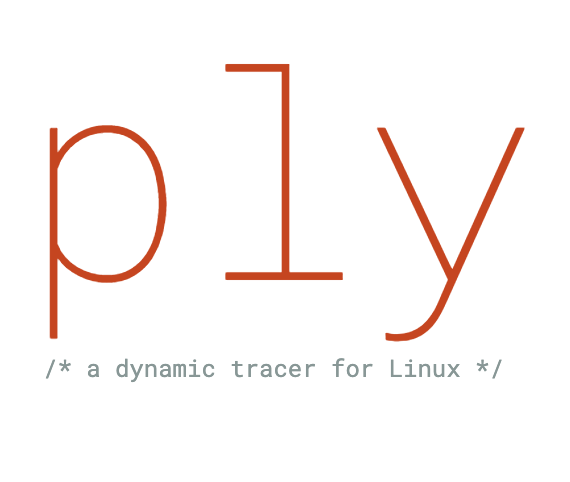This page lists a number of open source projects that use eBPF as the underlying core technology. These projects are not under the eBPF Foundation but are listed here as a survey of the eBPF project landscape today.
Applications (Major)
bcc
Toolkit and library for efficient BPF-based kernel tracing

BCC is a toolkit for creating efficient kernel tracing and manipulation programs built upon eBPF, and includes several useful command-line tools and examples. BCC eases writing of eBPF programs for kernel instrumentation in C, includes a wrapper around LLVM, and front-ends in Python and Lua. It also provides a high-level library for direct integration into applications.
bpftrace
High-level tracing language for Linux eBPF

bpftrace is a high-level tracing language for Linux eBPF. Its language is inspired by awk and C, and predecessor tracers such as DTrace and SystemTap. bpftrace uses LLVM as a backend to compile scripts to eBPF bytecode and makes use of BCC as a library for interacting with the Linux eBPF subsystem as well as existing Linux tracing capabilities and attachment points.
Calico
Pluggable eBPF-based networking and security for containers and Kubernetes
Cilium
eBPF-based Networking, Security, and Observability

Cilium is an open source project that provides eBPF-powered networking, security and observability. It has been specifically designed from the ground up to bring the advantages of eBPF to the world of Kubernetes and to address the new scalability, security and visibility requirements of container workloads.
Falco
Cloud Native Runtime Security

Falco is a behavioral activity monitor designed to detect anomalous activity in applications. Falco audits a system at the Linux kernel layer with the help of eBPF. It enriches gathered data with other input streams such as container runtime metrics and Kubernetes metrics, and allows to continuously monitor and detect container, application, host, and network activity.
Katran
A high performance layer 4 load balancer

Katran is a C++ library and eBPF program to build a high-performance layer 4 load balancing forwarding plane. Katran leverages the XDP infrastructure from the Linux kernel to provide an in-kernel facility for fast packet processing. Its performance scales linearly with the number of NIC’s receive queues and it uses RSS friendly encapsulation for forwarding to L7 load balancers.
Tetragon
eBPF-based Security Observability & Runtime Enforcement

Tetragon provides eBPF-based transparent security observability combined with real-time runtime enforcement. The deep visibility is achieved without requiring application changes and is provided at low overhead thanks to smart Linux in-kernel filtering and aggregation logic built directly into the eBPF-based kernel-level collector. The embedded runtime enforcement layer is capable of performing access control on kernel functions, system calls and at other enforcement levels.
Core Infrastructure (Major)
Linux Kernel
eBPF Runtime

Website | Git Trees | Mailing List | Patches | CI | Office Hours | Docs
The Linux kernel contains the eBPF runtime required to run eBPF programs. It implements the bpf(2) system call for interacting with programs, maps, BTF and various attachment points where eBPF programs can be executed from. The kernel contains a eBPF verifier in order to check programs for safety and a JIT compiler to translate programs to native machine code. User space tooling such as bpftool and libbpf are also maintained as part of the upstream kernel.
GCC Compiler
eBPF Backend
Website | Git Repo | Mailing List | Compiler Explorer | Bugtracker | Docs
The GCC compiler comes with an eBPF backend starting from GCC 10. Up to that point, LLVM has been the only compiler which supports generating eBPF ELF files. The GCC port is roughly equivalent to the LLVM eBPF support. There are some missing bits of functionality but the GCC community is working to close these gaps over time. GCC also contains eBPF binutils as well as eBPF gdb support for debugging of eBPF code that is traditionally consumed by the Linux kernel. Included as part of this is an eBPF simulator for gdb.
LLVM Compiler
eBPF Backend

Website | GitHub | Patches | Bugtracker
The LLVM compiler infrastructure contains the eBPF backend required to translate programs written in a C-like syntax to eBPF instructions. LLVM generates eBPF ELF files which contain program code, map descriptions, relocation information and BTF meta data. These ELF files contain all necessary information for eBPF loaders such as libbpf to prepare and load programs into the Linux kernel. The LLVM project also contains additional developer tools such as an eBPF object file disassembler.
Core Infrastructure (Emerging)
eBPF for Windows
eBPF Runtime

Website | GitHub | Office Hours | Slack Channel
The eBPF for Windows project is a work-in-progress that allows using existing eBPF toolchains and APIs familiar in the eBPF ecosystem to be used on top of Windows. That is, this project takes existing eBPF projects as submodules and adds the layer in between to make them run on top of Windows.
BPF Conformance
eBPF Conformance Testing Framework
A conformance testing framework for eBPF runtime implementations. It provides a set of tests that can be used to verify that an eBPF implementation is compliant with the eBPF specification.
hBPF
hBPF – eBPF in hardware

An extended Berkley Packet Filter CPU implemented in hardware on FPGA. In contrast to classic HDL languages like Verilog or VHDL, Migen/LiteX (both based on Python) where used. Supports custom extensions to ‘call’ opcode and includes full test suite for each opcode for included emulator and simulator as well as for included hardware targets.
PREVAIL
eBPF Verifier
A polynomial-time eBPF verifier supporting bounded loops based on abstract interpretation.
uBPF
Userspace eBPF Runtime
An eBPF runtime that permits execution of eBPF programs in user mode, with support for an interpreter as well as JIT compilation of eBPF programs on x86-64 and ARM64 architectures. This project supports running on Windows, macOS, and Linux platforms.
eBPF Libraries

Major: ebpf
Emerging: libbpfgo
eBPF is designed as a pure Go library that provides utilities for loading, compiling, and debugging eBPF programs. It has minimal external dependencies and is intended to be used in long running processes.
libbpfgo is a Go wrapper around libbpf. It supports BPF CO-RE and its goal is to be a complete implementation of libbpf APIs. It uses CGo to call into linked versions of libbpf.

Major: libbpf
libbpf is a C/C++ based library which is maintained as part of the upstream Linux kernel. It contains an eBPF loader which takes over processing LLVM generated eBPF ELF files for loading into the kernel. libbpf received a major boost in capabilities and sophistication and closed many existing gaps with BCC as a library. It also supports important features not available in BCC such as global variables and BPF skeletons.

Major: libbpf-rs | redbpf
Emerging: Aya
libbpf-rs is a safe, idiomatic, and opinionated wrapper API around libbpf written in Rust. libbpf-rs, together with libbpf-cargo (libbpf cargo plugin) allows to write ‘compile once run everywhere’ (CO-RE) eBPF programs.
redbpf is a Rust eBPF toolchain that contains a collection of Rust libraries to work with eBPF programs.
Aya is an eBPF library built with a focus on operability and developer experience. It allows for both eBPF programs and their userspace programs to be written in Rust.
Major: libxdp
libxdp is an XDP-specific library that sits on top of libbpf and implements a couple of XDP features: it supports loading of multiple programs to run in sequence on the same interface, and it contains helper functions for configuring AF_XDP sockets as well as reading and writing packets from these sockets.
Applications (Emerging)
Apache SkyWalking
APM, Application Performance Monitoring System

Apache SkyWalking is an application performance monitor tool for distributed systems, especially designed for microservices, cloud native and container-based (Kubernetes) architectures. SkyWalking Rover is an agent in the SkyWalking ecosystem, as a metrics collector and profiler powered by eBPF to diagnose CPU, I/O and L4/L7(TLS) network performance. Also, Rover provides add-on events for spans in the distributed tracing.
Blixt
Layer 4 Kubernetes load-balancer

Blixt is a layer 4 load-balancer for Kubernetes. It has a control-plane implemented using Gateway API and a data-plane built using eBPF and Rust.
bpfd
A system daemon and Kubernetes operator for managing eBPF programs
bpfd is a system daemon aimed at simplifying the deployment and management of eBPF programs. It’s goal is to enhance the developer-experience as well as provide features to improve security, visibility and program-cooperation. bpfd includes a Kubernetes operator to bring those same features to Kubernetes, allowing users to safely deploy eBPF via custom resources across nodes in a cluster.
BumbleBee
OCI compliant eBPF tooling

BumbleBee simplifies building eBPF tools and allows you to package, distribute, and run eBPF programs using OCI images. It allows you to just focus on the eBPF portion of your code and BumbleBee automates away the boilerplate, including the userspace code.
Caretta
eBPF based Kubernetes service map
Caretta is a Kubernetes service map that uses eBPF to trace network traffic between pods. It can be used to visualize the network traffic between services in a Kubernetes cluster, and gain additional insights into the network traffic and the relationships between services.
DeepFlow
Highly Automated Observability Platform powered by eBPF

DeepFlow is a highly automated observability platform built for cloud native developers. Based on eBPF, DeepFlow innovatively implements an automated distributed tracing mechanism: AutoTracing. Microservice processes, service mesh sidecars, and network interfaces along the way are included as tracing spans, for every distributed transaction, without any code instrumentation. DeepFlow can automatically generate golden RED metrics for any process in cloud native environment.
eunomia-bpf
eBPF programs in a WASM module or JSON

Eunomia-bpf is a dynamic loading library, based on libbpf, and a compiler toolchain. Eunomia-bpf simplifies building eBPF tools and allows you to package, distribute, and run eBPF programs in JSON format or as a WASM module. With eunomia-bpf, you can write kernel eBPF code and automatically expose your data from the kernel and interact with eBPF program in user space with a WASM runtime.
eCapture
SSL/TLS capture tool using eBPF
eCapture is a Go language-written tool that can capture HTTPS/TLS plaintext without a CA certificate. It supports TLS encryption libraries such as openssl, boringssl, gnutls, and nspr. It can run on x86_64 CPU architectures with Linux kernel 4.18 or higher, and aarch64 CPU architectures with Linux/Android kernel 5.5 or higher, supporting both CO-RE and non-CO-RE modes without BTF.
Hubble
Network, Service & Security Observability for Kubernetes using eBPF

Hubble is a fully distributed networking and security observability platform for cloud native workloads. It is built on top of Cilium and eBPF to enable deep visibility into the communication and behavior of services as well as the networking infrastructure in a completely transparent manner.
Inspektor Gadget
Introspecting and debugging Kubernetes applications using eBPF “gadgets”

Inspektor Gadget is a collection of tools (or gadgets) to debug and inspect Kubernetes resources and applications. It manages the packaging, deployment and execution of eBPF programs in a Kubernetes cluster, including many based on BCC tools, as well as some developed specifically for use in Inspektor Gadget. It automatically maps low-level kernel primitives to high-level Kubernetes resources, making it easier and quicker to find the relevant information.
Kepler
Kubernetes-based Efficient Power Level Exporter
Kindling
eBPF-based Cloud Native Monitoring & Profiling Tool

Kindling is a monitoring tool that aims to help users understand the execution behavior of programs from kernel space to user space to pinpoint the root cause of critical incidents. It can obtain L4/L7 network performance metrics and build service maps. Kindling implements a mechanism, Trace Profiling, that can display how each trace is executing on-CPU with thread-level flame graph, and how it is slowed down by off-CPU events with related metrics.
KubeArmor
Container-aware Runtime Security Enforcement System
kubectl trace
Schedule bpftrace programs on your Kubernetes cluster

kubectl-trace is a kubectl plugin that allows for scheduling the execution of bpftrace(8) programs in Kubernetes clusters. kubectl-trace does not require installation of any components directly onto a Kubernetes cluster in order to execute bpftrace programs. When pointed to a cluster, it schedules a temporary job called trace-runner that executes bpftrace.
L3AF
Complete lifecycle management of eBPF programs

L3AF is a platform to launch and manage eBPF programs in distributed environments. L3AF empowers users to compose multiple eBPF programs together to solve unique problems in different environments. Using the APIs provided by L3AF, these eBPF programs can be reconfigured, updated, inspected, and reordered on-the-fly. L3AF also provides configurable metrics for the eBPF programs it has launched.
LoxiLB
eBPF based cloud-native load-balancer for 5G Edge

LoxiLB is an open-source cloud-native “external” service load-balancer for cloud-native 5G/edge workloads written from scratch using eBPF as its core-engine and based on Go Language. LoxiLB turns Kubernetes network load balancing for 5G/Edge services into high speed, flexible and programmable LB services.
Merbridge
Use eBPF to speed up your Service Mesh like crossing an Einstein-Rosen Bridge
Merbridge is designed to make traffic interception and forwarding more efficient for service mesh. With Merbridge, developers can use eBPF instead of iptables to accelerate their service mesh without any additional operations or code changes. Currently, Merbridge already supports Istio, Linkerd, and Kuma.
Parca
Continuous Profiling Platform
Track memory, CPU, I/O bottlenecks broken down by method name, class name, and line number over time. Without complex overhead, in any language or framework. Using Parca’s UI the data can be globally explored and analyzed using various visualizations to quickly and efficiently identify bottlenecks in code. Parca uses eBPF to collect profiling data and uses libbpf-go to interact with the kernel.
Pixie
Scriptable observability for Kubernetes

Pixie is an open source observability tool for Kubernetes applications. Pixie uses eBPF to automatically capture telemetry data without the need for manual instrumentation. Developers can use Pixie to view the high-level state of their cluster (service maps, cluster resources, application traffic) and also drill down into more detailed views (pod state, flame graphs, individual full body application requests).
ply
A dynamic tracer for Linux

ply is a dynamic tracer for Linux which is built upon eBPF. It has been designed with embedded systems in mind, is written in C and all that ply needs to run is libc and a modern Linux kernel with eBPF support, meaning, it does not depend on LLVM for its program generation. It has a C-like syntax for writing scripts and is heavily inspired by awk(1) and dtrace(1).
Pulsar
A modular runtime security framework for the IoT

Pulsar is an event-driven framework for monitoring the activity of Linux devices. It allows you to collect runtime activity events from the Linux kernel through its modules and evaluate each event against your own set of security policies. Powered by eBPF and written in Rust, Pulsar is lightweight and safe by design.
pwru
eBPF-based Linux kernel network packet tracer

pwru is an eBPF-based tool for tracing network packets in the Linux kernel with advanced filtering capabilities. It allows fine-grained introspection of kernel state to facilitate debugging network connectivity issues.
Pyroscope
Continuous Profiling Platform
Pyroscope is an open source project centered around continuous profiling, particularly in a Kubernetes context. It leverages eBPF as its core technology along with a custom storage engine to offer system-wide continuous profiling with minimal overhead as well as efficient storage and querying capabilities. We support Linux 4.9 and up thanks to CO-RE and libbpf.
SSHLog
eBPF SSH session monitoring
SSHLog is a Linux daemon written in C++ and Python that monitors OpenSSH servers via eBPF. The agent passively records all SSH session activity (commands and output) to log files for any connecting user. Administrators can also share an SSH session with any logged in user. Actions may be triggered based on SSH behavior such as posting a Slack message when a remote user attempts to gain root access.
Sysinternals Sysmon for Linux
Security Observability
Sysmon for Linux is a tool that monitors and logs system activity including process lifetime, network connections, file system writes, and more. Sysmon works across reboots and supports advanced filtering to help identify malicious activity as well as how intruders and malware operate on your network.
Tracee
Linux Runtime Security and Forensics using eBPF

Tracee uses eBPF technology to detect and filter operating system events, helping you expose security insights, detect suspicious behavior, and capture forensic indicators.
wachy
UI for interactive eBPF-based userspace performance debugging
FAQ
Add your project
- Make sure that the project is meeting the requirements to be listed. See below.
- Open a pull request and provide the required information. Use one of the already listed projects as a template.
- The pull request will be reviewed by the community and merged by one of the maintainers. If you have any questions, feel free to ask on Slack.
Are you maintaining a listed project?
- If you are maintaining one of the listed projects and would like to adjust the content. Get in touch on Slack or open a pull request directly.
Requirements for a project to be listed
Projects can be listed on this page as “Major” or “Emerging”. The requirements for being listed as “Emerging” are:
- The project must be open source. All source code must be licensed under an open source license. Any documentation must be licensed under an open license.
- The project must be using eBPF as its underlying core technology, in other words, a project would lose its purpose if the eBPF parts are removed.
- The project must be open to collaboration and have a governance model following open-source best-practices.
In order to be listed as a “Major” project, a project must meet all of the requirements above, plus:
- The project must have more than 50 contributors.
- The project must be actively maintained.
- The project must be used in production-like environments with a significant amount of users. Since this information may not be easily discoverable from a link to the project, such information should be included in the pull request description.



